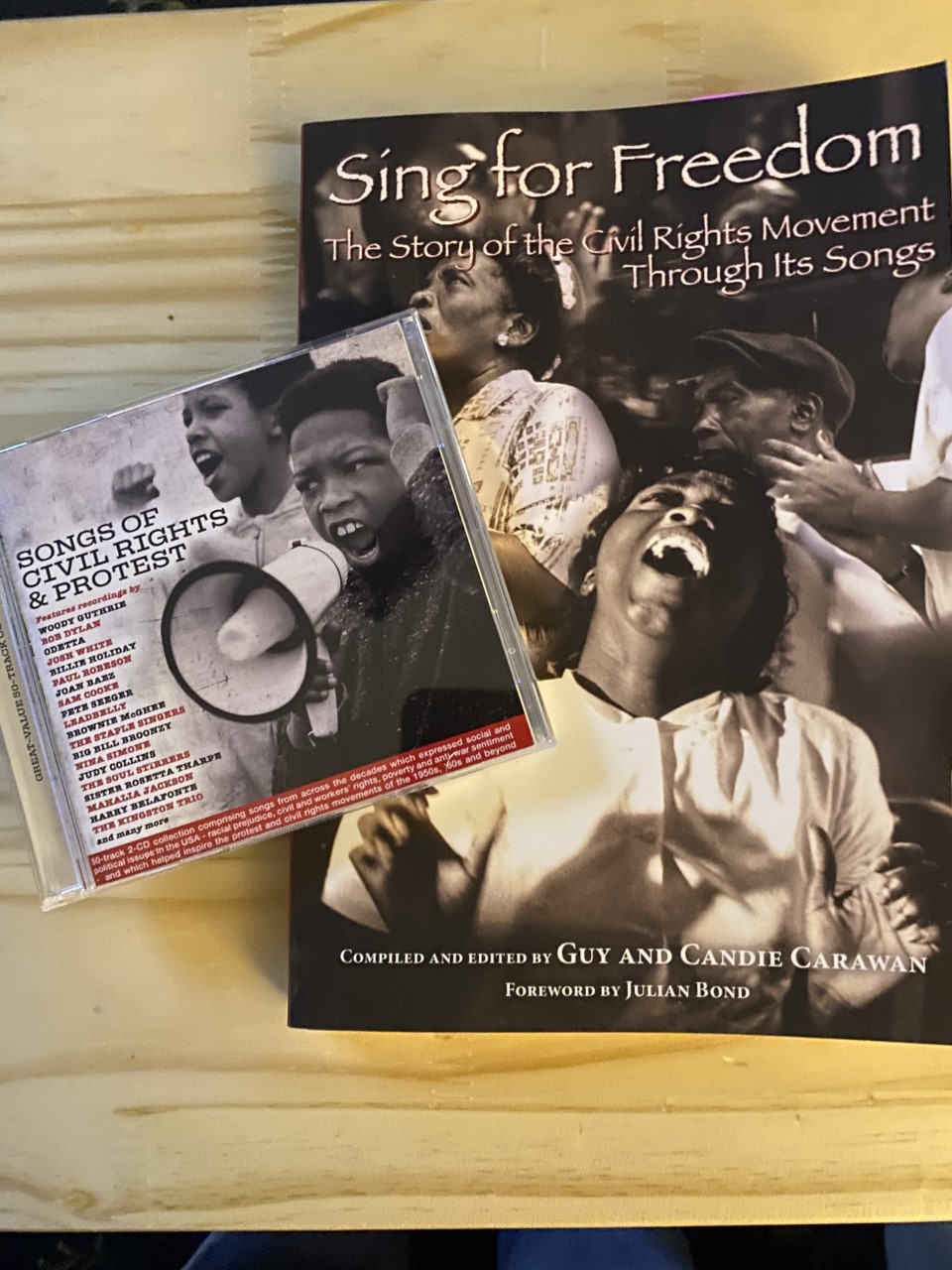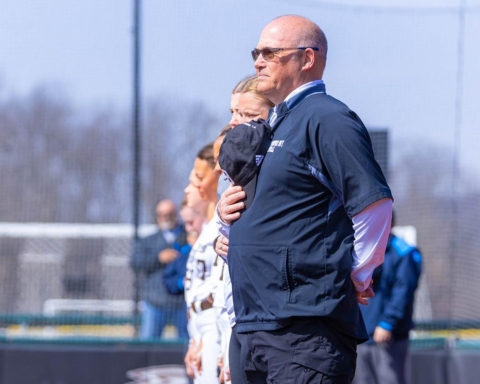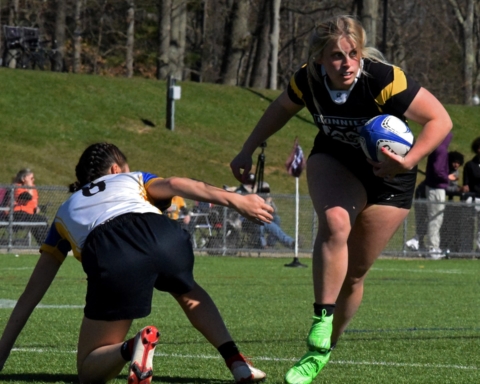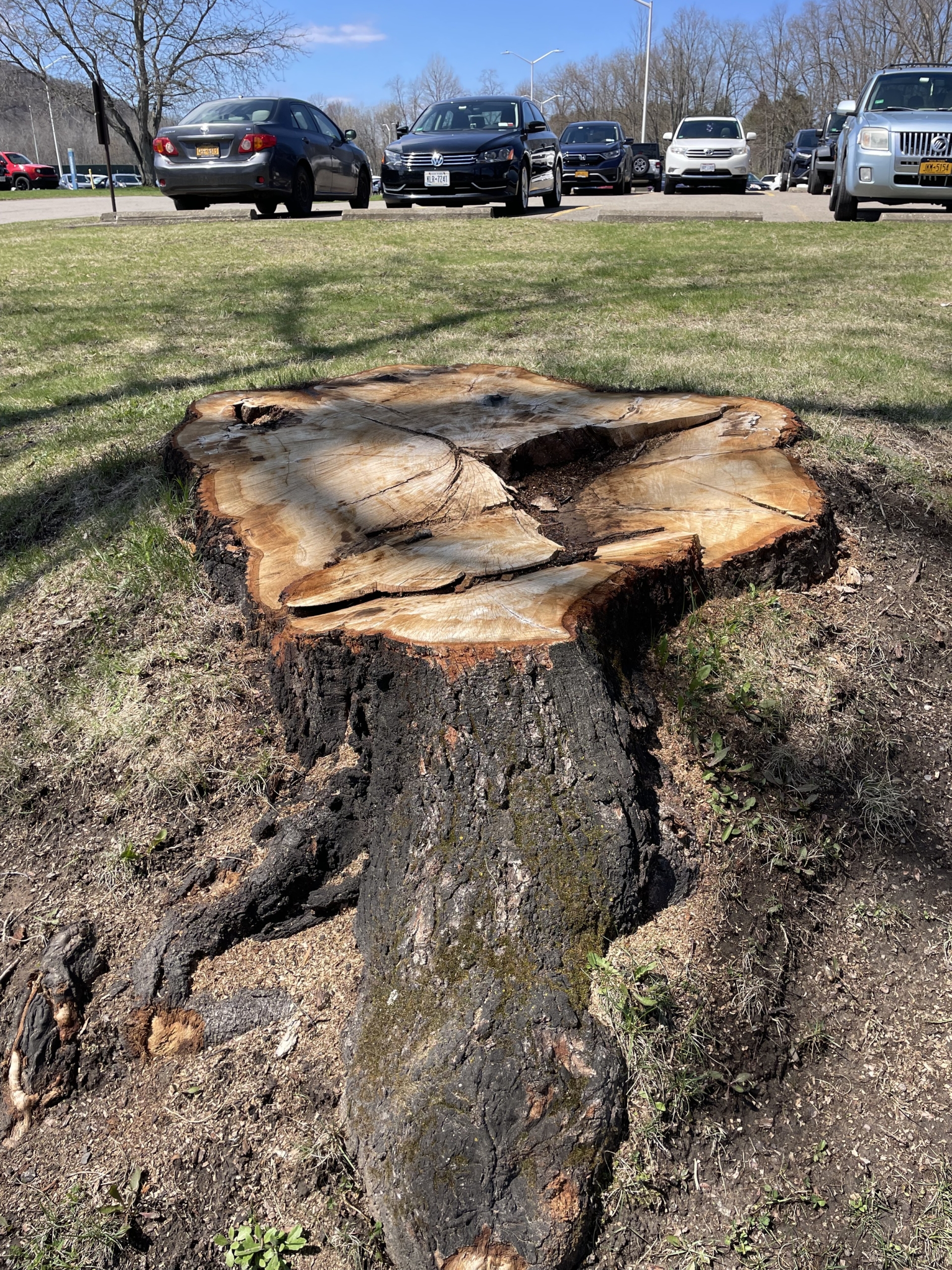Cocca’s inspiration for the songs in his program
Photo courtesy of Stephen Cocca
BY: DAVID SCIBILIA, NEWS EDITOR
Stephen Cocca ‘73 is no stranger to WSBU 88.3 FM “The Buzz,” the student-run radio station at St. Bonaventure University. After serving as station manager from 1970 to 1973, Cocca returned to the station in 2017 where he started his show, “Flying.”
On Feb. 21 at 1 p.m., Cocca will host Phillip Payne, the Bonaventure history department chair, in an hour of cultural discussion around songs important to the civil rights movement.
“For this episode, ‘The Music of the Civil Rights Movement,’ I selected and researched eight songs that are generally considered to be closely tied to the significant marches, protests, demonstrations, rallies and festivals associated with the civil rights movement of the late 1950s and early 1960s,” Cocca said. “My guest, Dr. Payne, will then frame each selection within the context of the time, including the historical events and resulting legislation or social changes that came about from these protests.”
Some of the songs in the program include “We Shall Overcome,” “Strange Fruit” and “Keep your hand on that Plow.”
Payne believes that students should tune into the show because of the ongoing issues that these songs help provide context for.
“Whether it be race relations in the United States, the importance of civil rights and the importance of participating in our political system of the vote, there are many issues we continue to debate to this day,” Payne said. “To understand these issues, it really helps to have some context.”
Cocca is using this special episode as a way to celebrate Black history month.
“I wanted to offer the program as my contribution to the honor bestowed upon Black history during the month of February,” Cocca said.
Hoping listeners learn more about the cultural significance of this music, Cocca sees this episode as a great learning experience.
“In the short term, I want listeners who might not be familiar with this music to experience these classic and very recognizable songs and to be able to frame them in the broader picture of linkage to the civil rights movement,” Cocca said. “The struggle is not over and music can be a link to that struggle, giving it context and attachment.”
Overall, Cocca stresses how music can connect people and give voices to traditionally disenfranchised groups.
“Like Hip-Hop music’s ability to connect themes that resonate with disenfranchised youth of marginalized backgrounds to a broader white public, the music of early protest songs of the civil rights movement provided a voice which transcended previously impossible barriers,” Cocca said. “These songs provide a vehicle for those who believe that a justice-filled and equal world is still possible through the melody and lyrics of this important music.”
Payne wants students to think about the music they listen to today and urges them to think about how it could reflect a historical situation in the future.
“If you’re a typical college-age student, think about the music you’re listening to today, and think about how people could relate that to a specific historical event,” Payne said. “The show was intended for thinking and reflecting.”
scibild22@bonaventure.edu






